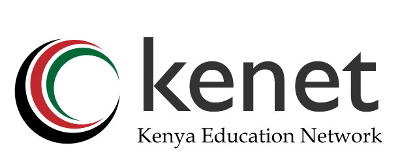You are here
Enhancing Connectivity in Healthcare: The Impact of eduroam at AIC Kijabe Hospital
- Posted on: 29 October 2024
- By: admin
Seamless and secure internet connectivity is essential for efficient learning and patient care. eduroam has revolutionized connectivity within AIC Kijabe Hospital by offering centrally managed and secure access for all authorized users. Through eduroam, doctors, nurses and medical students at the hospital can instantly connect to Wi-Fi using the institution’s credentials, bypassing the need to search for public hotspots. This reliable, continuous access enhances both learning and working experiences, allowing users to stay connected on personal devices—whether smartphones, tablets, or laptops—whenever and wherever eduroam is available.
Gidraf Mulama, the Network and Infrastructure Officer at AIC Kijabe Hospital, plays a pivotal role in ensuring that all end users are connected and can access shared resources. He explains, “My major roles and responsibilities are to make sure every end user is connected, and they can access our shared resources, that includes the Health Management Information System (HMIS) and any other shared resources that might be needed in carrying out the hospital's day-to-day operations."
Before the implementation of eduroam, the hospital relied on two Wi-Fi SSID’s that utilized shared passwords for access. This setup not only posed security risks but also limited seamless connectivity for visiting medical professionals and students. Gidraf noted, “The challenge we had was password oversharing. You could find too many people connecting to the Wi-Fi because they only needed the Wi-Fi password, making the network slow.”
The introduction of eduroam has transformed network access for students, faculty, and staff across participating institutions by enabling seamless, secure, and trusted internet connectivity through their institutional credentials. This upgrade has not only strengthened network security but also simplified the process of accessing resources for all users. By facilitating a continuous, secure connection, eduroam ensures that individuals can freely access necessary resources without restrictive barriers, fostering a more inclusive and collaborative digital environment.
The technical implementation of eduroam required a collaborative effort with KENET, which played a critical role in setting up and supporting the necessary infrastructure. Although not originally planned, the addition of eduroam necessitated network upgrades to facilitate seamless WiFi connectivity. KENET's expertise proved invaluable throughout the integration, providing both the technical support and guidance essential for success. KENET technical team, offered hands-on assistance with setup and troubleshooting, ensuring any challenges were swiftly addressed. This collaboration greatly contributed to the efficient deployment and smooth functioning of the eduroam service.
Since the installation of eduroam, the hospital has experienced numerous benefits. One of the most significant changes has been the elimination of the need for users to request Wi-Fi passwords. Gidraf noted, “We don’t have the challenge of people asking for Wi-Fi passwords throughout. We just tell them they can log in to the Wi-Fi through the authentication of our active directory logins.” This simplification has not only improved user satisfaction but has also reduced the administrative burden on hospital staff.
eduroam has greatly improved connectivity for medical training and research, benefiting both students and healthcare professionals. This enhanced access supports the needs of students and doctors in advanced education, particularly those involved in exchange programs. With eduroam’s seamless connectivity, visiting doctors, nurses, and students can access essential online resources without the complexities of temporary access. This reliable network fosters a more inclusive and efficient learning environment, empowering individuals to focus on their studies and professional development.
Moreover, eduroam enhances data security. By enabling users to log in through their home institution's credentials, it reduces reliance on public Wi-Fi, safeguarding sensitive data and protecting users from potential cybersecurity threats. Institutions benefit as well, with simplified access management—removing the need for shared usernames, passwords, or individual access requests. This streamlined approach not only secures network access but also lowers the risk of unauthorized connections, making eduroam an asset for building a connected, secure, and efficient healthcare environment.
Beyond enhancing connectivity, eduroam has been pivotal in bridging the digital divide within the hospital. By delivering secure and reliable internet access, eduroam ensures that authorized users—healthcare professionals, patients, and visitors alike—can stay connected with ease. This inclusive connectivity fosters a collaborative environment, allowing healthcare teams to communicate more effectively and access essential resources in real-time. Ultimately, eduroam is not only advancing digital accessibility but also strengthening the hospital community.
The implementation of eduroam at AIC Kabete Hospital has significantly enhanced connectivity, improved operational efficiency, and fostered a culture of digital inclusion. With the support of KENET, the hospital has successfully navigated the challenges of internet access, paving the way for a more connected and collaborative healthcare environment. As Gidraf Mulama aptly puts it, “Internet is very critical to our day-to-day running of activities here.” The future looks promising as AIC Kijabe Hospital continues to leverage technology to improve healthcare delivery and education.
